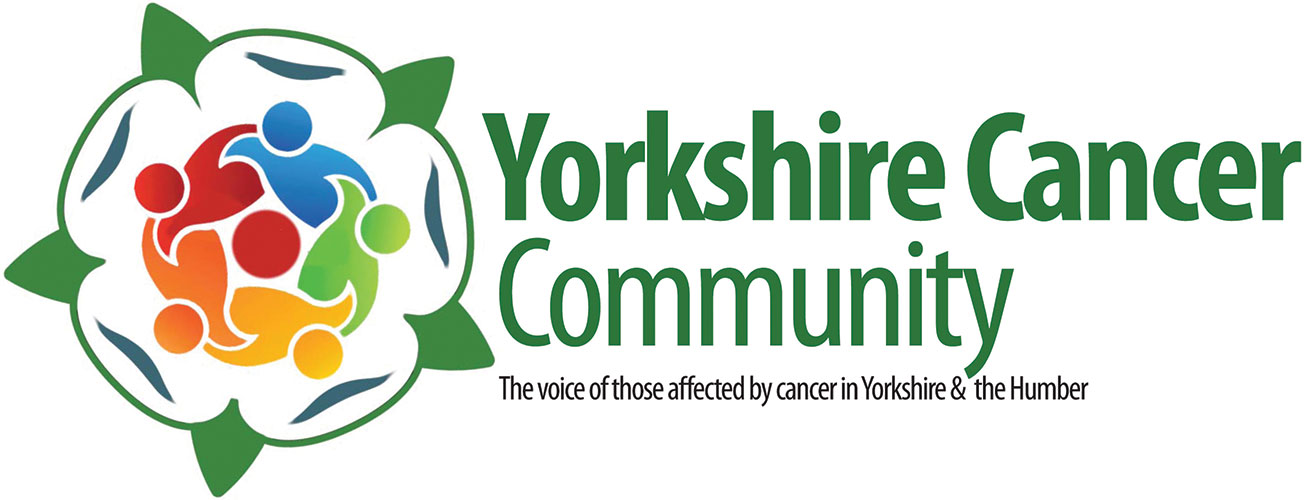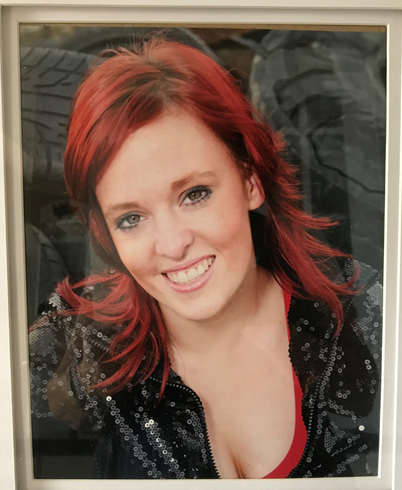Cancer Champion Carol Beardmore explains what motivates her to speak out about cervical cancer and campaign for better access to screening for people with learning disabilities and autism
When there’s a problem some people walk away and some people roll up their sleeves.
Bradford woman, Carol Beardmore falls into the latter category. When her young daughter Natalie needed after school and holiday play schemes tailored to her special needs, Carol along with a friend, set one up.
SNOOP – Special Needs Objective Outreach Project – was set up in August 2000 to offer a centre for children with disabilities and complex needs. The Centre is still thriving, delivering services for young people with learning disabilities and autism aged 2 years – 45 years and now employs 30 staff.
So when through the most tragic of circumstances, Carol lost her other daughter Zoe to cervical cancer, Natalie, who has Downs syndrome and early Alzheimer’s was determined that she should take up screening for the disease for everyone’s’ peace of mind.
At that point, Carol didn’t know she would be taking on another battle, to arrange cervical screening for her daughter, which is routinely offered to anyone with a cervix aged 25 and over. But also, to arrange HPV vaccinations which are now offered to school children aged 12 – 13 years of age, but were not available when Natalie was at school.
Carol goes back to the time when her daughter Zoe, a professional dancer, was diagnosed with cervical cancer.
Zoe had followed her dream and danced all over the country in shows and holiday parks, and because of the peripatetic nature of her work, and as she was touring the country was never in one place long enough to access or register with a different GP.
When interviewed following her diagnosis Zoe said: “Looking back it’s something I should have done. It’s not something I was scared of, but I just felt it was something I didn’t need to do yet…. I was only 25 and I was never in one place to go and have the test.”
Zoe, who lived in Beverley, East Yorkshire with her fiancé Jimmy Hargreaves, visited her Mum over Christmas and talked about her hips and back aching. She had taken temporary bar work and put the aches and pains down to the job but arranged to see her GP after slight bleeding.
Zoe was referred for a scan to see if it was cysts or polyps but before that could happen, she was rushed to Hull Royal Infirmary in January 2019, with heavy bleeding.
The shocked dancer was told she had stage 3b cervical cancer and was admitted to Castle Hill’s Ward 30 where she was treated with chemotherapy, radiotherapy and brachytherapy, which is a more direct form of radiotherapy, targeting the tumour at close range.
Carol remembers it as an emotional roller coaster but Zoe was told she had reacted well to treatment and by September, they began to hope the cancer had been removed.
During a routine scan the following March, the cancer was found to have spread to her lymph nodes and kidneys and lungs and by the July, Zoe had sadly passed away.
Zoe’s final months were not as comfortable as Carol would have liked.
“She couldn’t carry on working as she wasn’t well enough. She had a fantastic work ethic, but she was struggling with blood clots on her lung. She became isolated and began to doubt herself.”
Like many cancer patients, she and Jimmy, who was now her husband, struggled to make ends meet on one wage and earned around 62p per week too much to be eligible for any benefits. Life was tough, and Zoe felt the cold but couldn’t afford the luxury of warm clothes to fit her new petite shape after dramatically losing weight through treatment.
Carol did what she could to help but was acutely aware that Zoe needed something to look forward to each day. Carol explained that the world assumed that because Zoe had responded so well to treatment that she must be cured and could go back to doing what she did before and be the person she was before the cancer. That, says Carol, is not possible.
“After the treatment my daughter was physically, emotionally and psychologically wrecked. With dramatic weight loss, a kidney that was not functioning and required stents fitted before they finally had to fit a nephrostomy bag permanently, she could not return to the job she had and society made assumptions about her that were simply wrong.
No one can go through such treatment and be the same person. There was so much talk about wellbeing and mental health due to Covid, but not about someone who had been isolated due to the pandemic and experienced trauma. Zoe said she had no structure or purpose to her day and without money, something as simple as a coffee with a friend, to be able to feel like her old self was out of reach financially.”
Zoe’s suffering has inspired Carol to set up a fund called Zoe’s Trust. She wants it to help those people finishing treatment who are learning to live again.
“You’re not the person you were, and you’re not the person you are going to be, you just need a little help to feel good and learn to live again “Carol explained.
Carol sees the fund as paying out small amounts of funding between £10 and £50 to help a recovering cancer patient pay for a coffee with a friend or buy a warm jumper. Whatever they need at that time to help them to feel better about themselves again.
She also sees the Trust as helping to raise awareness of the importance of cervical screening. Daughter Natalie is 38 and now understands Zoe is not coming back, and that she died from cervical cancer.
She wants reassurance she will not get the same illness as her sister, but has been unable to have a smear test because of the invasive nature of the procedure.
“The only reason cervical cancer rates are falling is because of the introduction of HPV vaccinations to school children, but Natalie missed out as they were introduced after she had finished school,” adds Carol.
She could pay £150 per injection for a course of three, but says there should be a long-term solution that is available to everyone – not just those who can afford to pay.
Carol fears there will be many more cases like Natalie’s, where young women are not having a smear test, and haven’t received the HPV vaccine.
Nationally there are no accurate statistics for whether people with learning disabilities are able to access any of the cancer screening programmes, and without statistics it is difficult to prove there is a problem.
In Bradford, Carol is a member of Bradford Healthier Lives Group and with other parents, professionals and people with learning disabilities, campaigns to improve information and choices for people with learning disabilities as part of their ‘lifelong approach’ to planning and services.
One of their successes has been to get a question about HPV added to the Annual Health Check.
If this topic affects you, you would like to build a campaign or would like a training session for your group, please contact Carol Beardmore at SNOOP 01274 292126 or carol.beardmore@snoopcharity.org
HPV
- HPV stands for the Human Papilloma Virus – it’s very common with over 100 types of viruses and no symptoms
- Most people will be infected with it at some point and will never know they had it
- You do not need to have had penetrative sex to get the virus. You can get the virus by close contact. Usually the body’s immune system gets rid of the virus naturally – but if not cleared the virus can cause damage eventually leading to cancer
- HPV vaccine – helps to protect against cancers caused by HPV including cervical cancer, some mouth, throat, head and neck cancers, some cancers of the anal, penis and genital areas
Who can get the Vaccine?
- Girls and boys are eligible for the HPV vaccine which is routinely offered to children aged 12 – 13 years.
- If you missed the vaccination in school, you can get it free on the NHS until your 25th
- If you are over 15 years of age you will need to have three injections and this is available up to the age of 44, however there is a cost.
- It is still important that women for cervical screening (smear test)
- For more information go to https://www.nhs.uk/conditions/human-papilloma-virus-hpv/
You can find a link that take you through to videos talking about cancer screening suitable for people with learning disabilities here:

